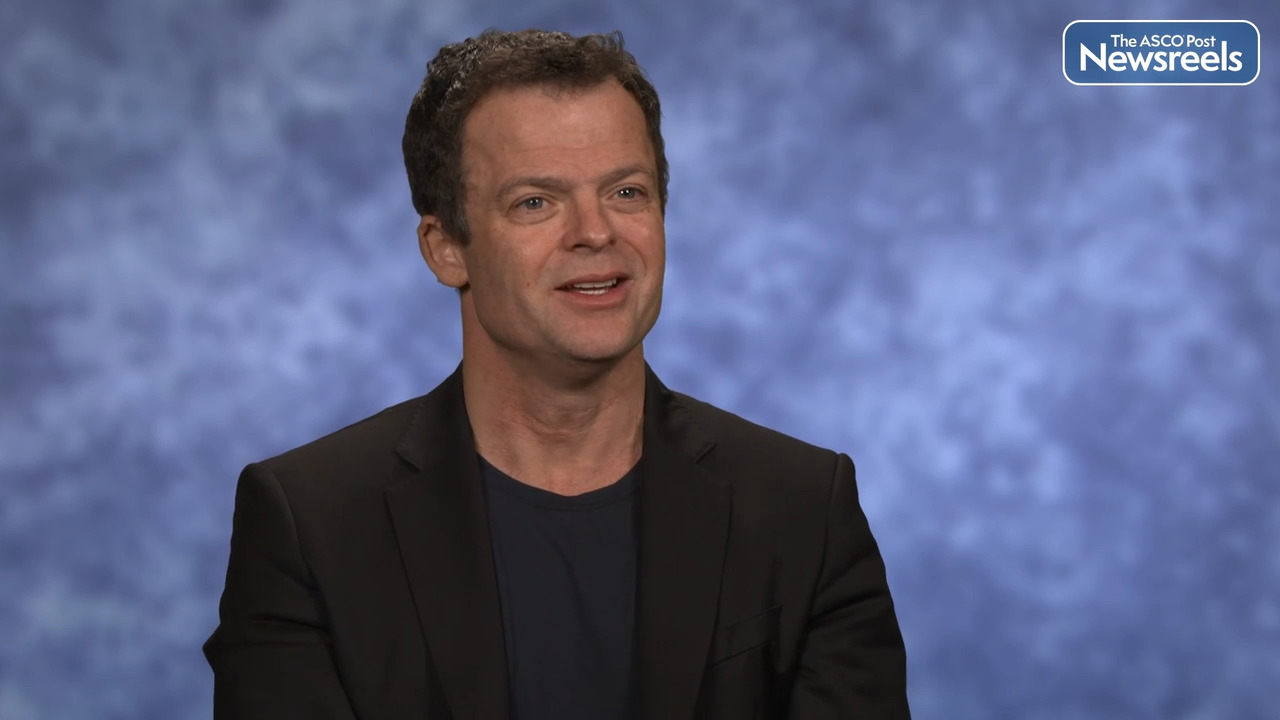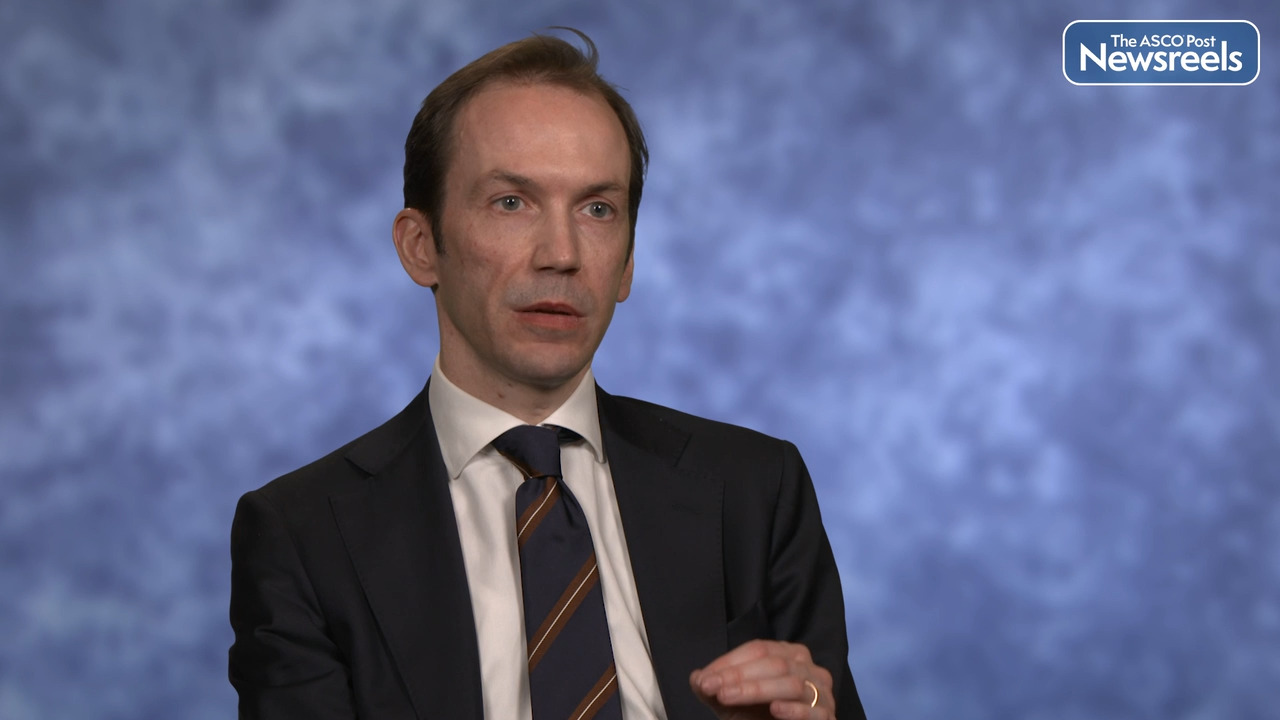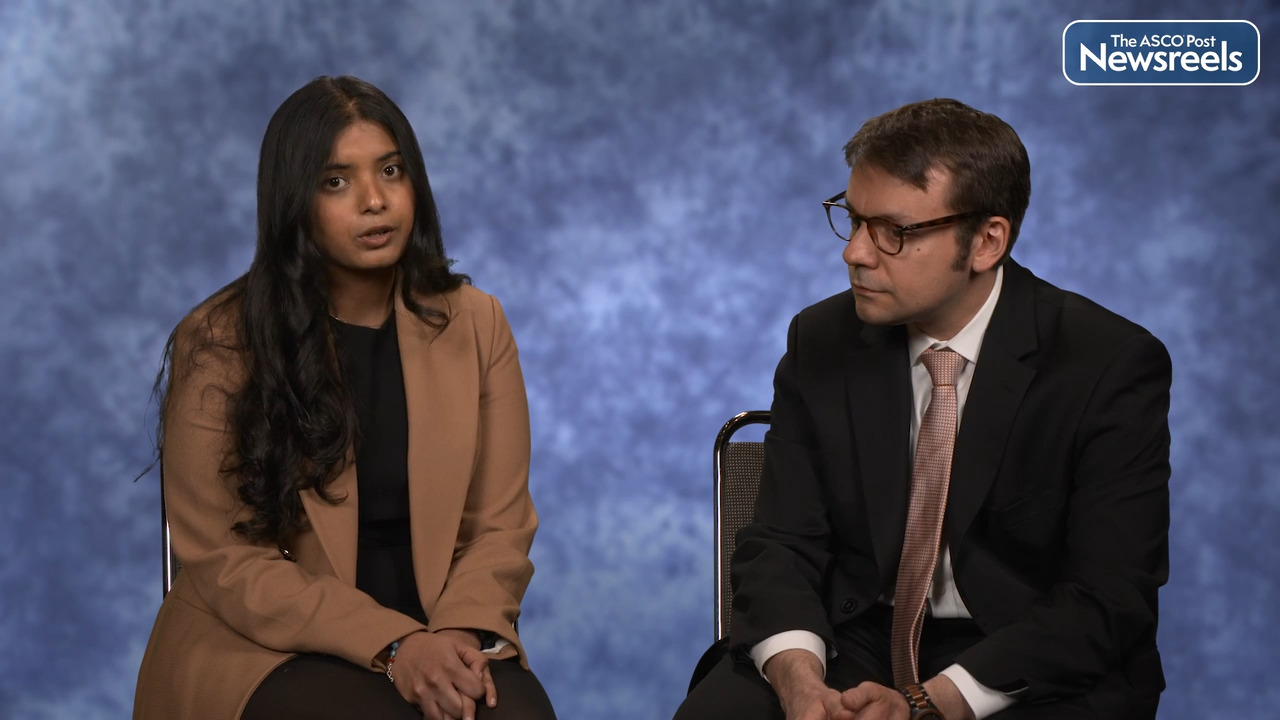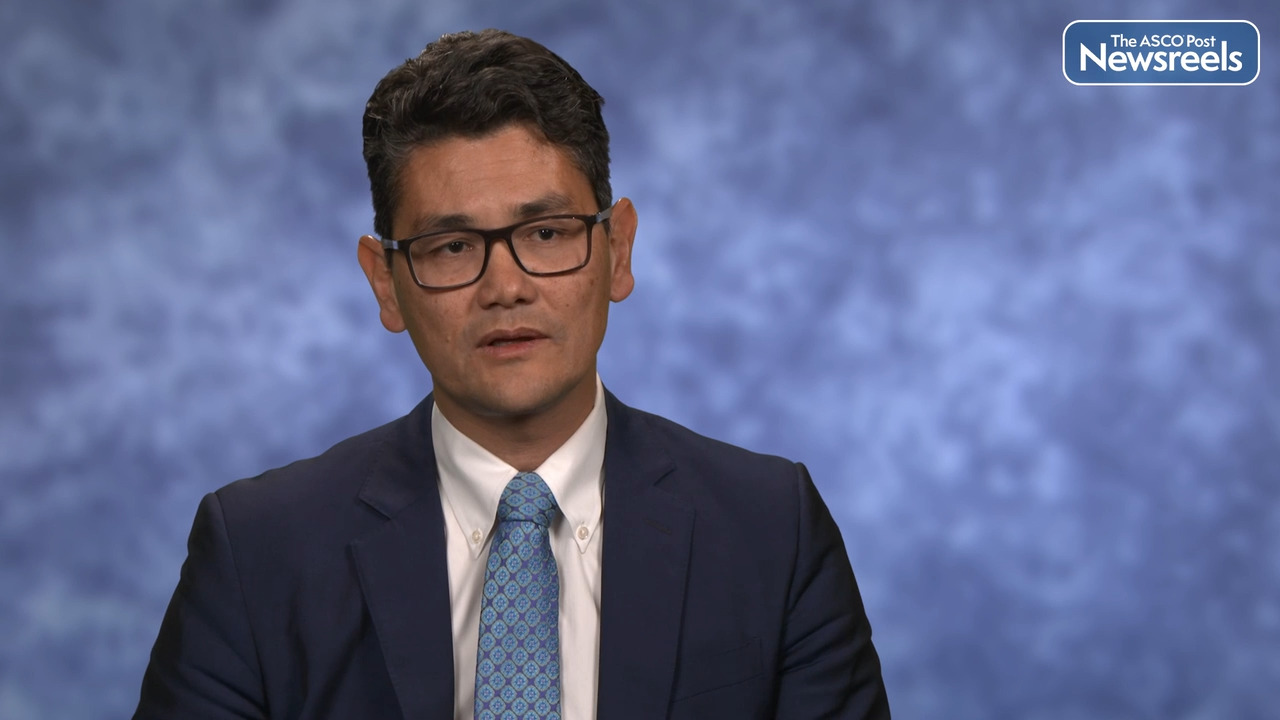Daniel P. Petrylak, MD, on Prostate Cancer: Latest Data on Pembrolizumab Plus Docetaxel
2023 ASCO Genitourinary Cancers Symposium
Daniel P. Petrylak, MD, of the Yale Cancer Center, discusses phase III findings from the KEYNOTE-921 study, which was designed to assess the combination of pembrolizumab and docetaxel in the treatment of patients with metastatic castration-resistant prostate cancer. They had not received chemotherapy, but their disease progressed on the next-generation hormonal agent, or they could not tolerate the agent. (Abstract 19).
Transcript
Disclaimer: This video transcript has not been proofread or edited and may contain errors.
The keynote study in metastatic prostate cancer was designed to ask the question as to whether immune therapy improved the survival and their radiographic progression-free survival of patients treated with Docetaxel with castrate resistant prostate cancer. The median survival of patients with Docetaxel is generally about 19 months. However, other studies have demonstrated that when Docetaxel is administered after next generation anti-androgens, the survival is somewhat lower, about 13 months. So, in a phase two trial, it was determined that the median survival of Docetaxel combined with Pembrolizumab was approximately 19 months, and this was the impetus for going fourth with a phase three trial comparing Docetaxel plus Pembrolizumab to the standard of care Docetaxel. In both arms, prednisone was administered at five milligrams BID. Unfortunately, the results of the study demonstrated that there was no improvement in radiographic progression-free survival or overall survival. The implications of this are that, at least from this particular standpoint, immune checkpoint therapy does not change the standard of care for chemotherapy for metastatic castration resistant prostate cancer.
What we need to do is to move forward and look at the different molecular markers. We've collected tissue as part of this particular trial, it was a requirement to see those patients who've responded to Docetaxel if there is any molecular signature that we can use. We know that Pembrolizumab is FDA approved in those patients who have microsatellite instability with metastatic prostate cancer, but that only represents 2% of the population, and there have been responses observed with Pembrolizumab in those patients who do not have microsatellite instability. We have to understand, of course, what the proper signature is for that. So, the future trials will not be looking at simple checkpoint therapy combined with chemotherapy in this particular setting, but will focus on looking at molecular signatures that may improve the response rates to immune therapy and to chemotherapy, and potentially combine the two of them together.
The ASCO Post Staff
Thomas Powles, MD, PhD, of Barts Health NHS Trust, Queen Mary University of London, discusses new data from the COSMIC-313 study of patients with advanced renal cell carcinoma of IMDC (International Metastatic RCC Database Consortium) intermediate or poor risk. Those who received cabozantinib instead of placebo with nivolumab and ipilimumab as first-line treatment seemed to experience improved progression-free survival. A subgroup analysis suggested the benefit was primarily in patients with an intermediate risk. Follow-up for overall survival is ongoing. (Abstract 605).
The ASCO Post Staff
Andrea Necchi, MD, of Italy’s Vita-Salute San Raffaele University and the IRCCS San Raffaele Hospital and Scientific Institute, discusses new data from the KEYNOTE-057 trial on a novel systemic therapy for papillary high-risk non–muscle-invasive bladder cancer. The findings suggest that patients whose disease does not respond to bacillus Calmette-Guérin or who declined or were ineligible for a radical cystectomy may benefit from pembrolizumab monotherapy. (Abstract LBA442).
The ASCO Post Staff
Vadim S. Koshkin, MD, and Tanya Jindal, BS, BA, both of the University of California, San Francisco, Helen Diller Family Comprehensive Cancer Center, discuss results from the retrospective UNITE study of biomarkers of response to the antibody-drug conjugate enfortumab vedotin-ejfv in patients with advanced urothelial carcinoma. Enfortumab vedotin is used widely in treatment-refractory disease, but there have been limited data available on biomarkers that may predict outcomes with this treatment. The UNITE study has now identified several potential biomarkers that need to be validated to help inform clinical decision-making and therapy sequencing. (Abstract 450).
The ASCO Post Staff
Toni K. Choueiri, MD, of Dana-Farber Cancer Institute, discusses a biomarker analysis from the phase III CheckMate 9ER trial of nivolumab plus cabozantinib vs sunitinib for the treatment of patients with advanced renal cell carcinoma. The ongoing study aims to identify a predictive biomarker that may potentially guide therapeutic choices. (Abstract 608).
The ASCO Post Staff
Alan H. Bryce, MD, of the Mayo Clinic, discusses the final results of the primary endpoint of rPFS and interim results on overall survival among patients with chemotherapy-naive metastatic castration-resistant prostate cancer. The data showed that rucaparib improved radiographic progression-free survival compared with either docetaxel or abiraterone and enzalutamide in disease with BRCA1/2 alterations. (Abstract 18).





